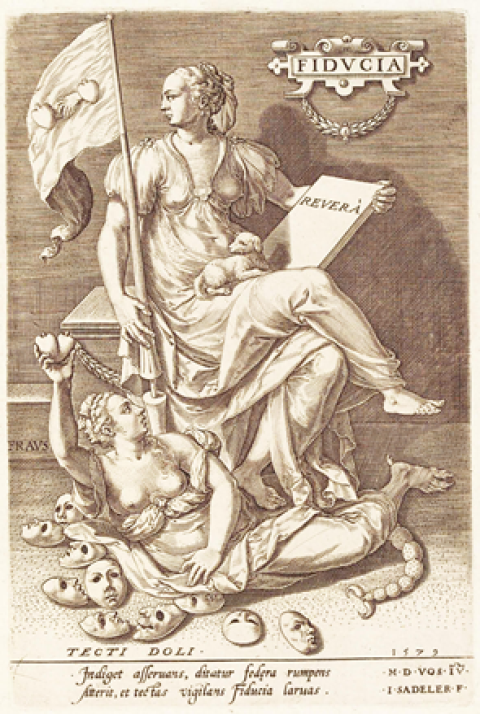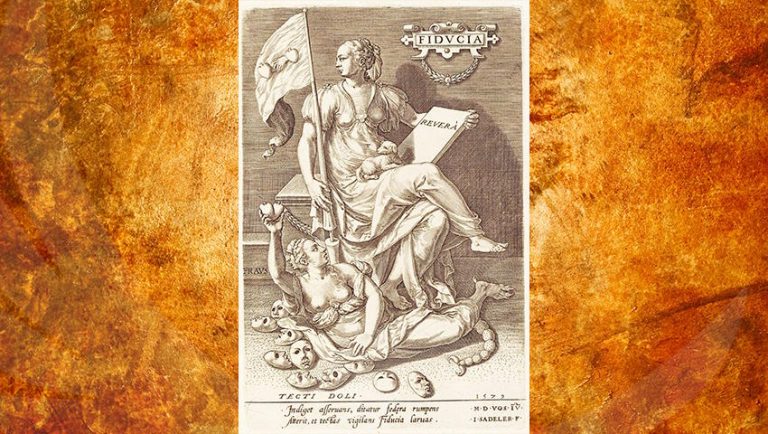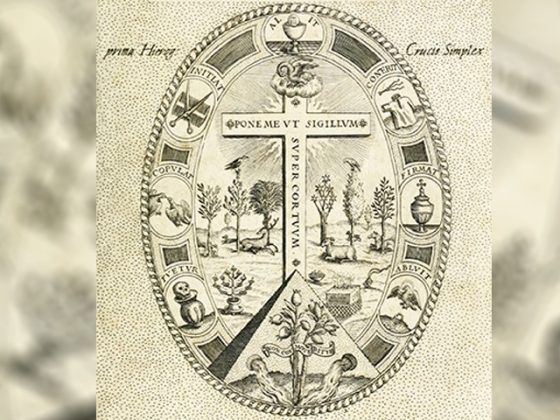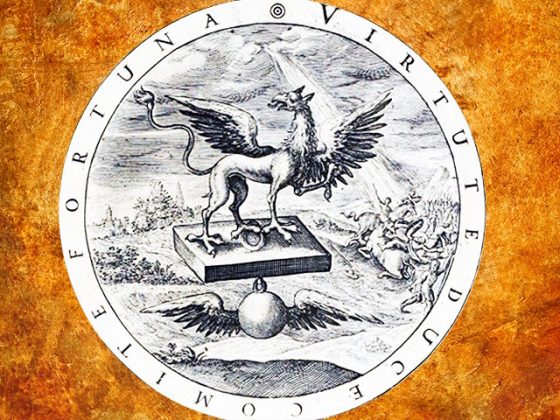Dearest readers:
On this occasion, I would like to send you the present engraving that was part of a series of drawings attributed to Marten de Vos ─1532-1603─, although the engraver was a character named G. D. Mortier. This engraving was part of a series of drawings intended to show that virtues conquer vices. Specifically, this artistic work is entitled…
…TRUST DEFEATS DECEIT

The central character is constituted by a seated woman, who with her right hand holds a flag showing two hearts and in the middle of them a handshake.
To the left of this lady there is a sign on which the word FIDUCIA OR FIDVCIA can be read, which is to be translated as ‘TRUST'.
At the feet of the ladies we are describing TECTI DOLI can be read, which is to be interpreted as ‘disguised deception'.
The lady who is seated holds in her left hand a book whose title is REVERÁ, which means ’in truth’, ’in reality’…
It should also be noted that another woman is shown lying at the feet of the first one whom we have already described. She has monstrous feet and a scorpion-like tail that spouts from her backside. This other lady has her breasts bare, with her right hand she shows two fruits, and near the elbow of her right arm appears the Latin word FRAVS, which is to be read as ‘FRAUD'.
We can also see next to the woman lying on the ground a series of varied masks. WHAT IS ALL THIS?
We have to start from the fact that this engraving makes a comparison between trust and fraud. The first is a virtue, the second is a vice, in other words, a psychological aggregate present in a great many people in our world. Fraud has become so common in our day that those who do not practice it are looked upon as foolish, stupid, and ridiculous. That is how our society is today.
Obviously, the woman who carries the flag, representative of trust, symbolizes all those who trust in their eternal values, in their own BEING, and with such souls treatises and pacts of any kind can be made, because they never betray themselves…
Trust ─Fidvcia─ is associated with loyalty, which is why we see a little dog on the lap of this woman who is sitting. The handshake we can see on the flag has the same meaning. In the past, a handshake was enough to seal a pact between gentlemen, today not even treaties signed and sealed with the signature of those who contract them are useful.
Fraud, represented by the woman lying down, has always been rude and seditious. That is why we see the breasts of this other lady shown without any shame, while the woman who represents trust appears attired in a dress that covers her body from top to bottom.
The word REVERÁ, which means ‘in truth', ‘in reality'…, is written in the book of the modest woman to show us that we must nourish ourselves by studying the power of the virtues.
On the other hand, the woman representing fraud is surrounded by masks. Those masks allude to the various personalities or psychological aggregates that live within the “human” individual. We have, unfortunately, many ways of being fraudulent. There is fraud in the economy, in religious texts, in theological interpretations, in the art of our time, and even philosophy ended up being fraudulent to such an extent that it was reduced to mere political whims –namely: capitalism, communism, socialism, etc., etc., etc. –.
We cannot omit to point out the fruits of the recumbent woman that she with one of her arms shows or wants us to see. These are the fruits of DECEIT, of all that we do fraudulently motivated by our various psychic aggregates in our world of relationships.
If we are fraudulent we will become more and more monstrous, because fraud is a form of lying and it is written that those who practice lying from life to life will become more and more deformed, as the V.M. Samael Aun Weor declared to us in his written works and in his conferences given on various occasions.
There are some phrases written in Latin at the bottom of this beautiful engraving, but, while observing that they are not done correctly, we have preferred not to interpret them, as they show a contradiction for our reader.
I now add a few sentences for your reflection:
“Trust often breeds loyalty.”
Seneca
“Self-confidence is the first secret to success.”
Emerson
“Success depends less on external support than on self-confidence.”
Lincoln
“Confidence is the mother of great deeds.”
Schiller
“He who has no trust in man has no trust in God.” Chapmann
NOVUS ORDO SECLORUM.
─‘Un nuevo orden para siglos posteriores’─.
KWEN KHAN KHU





